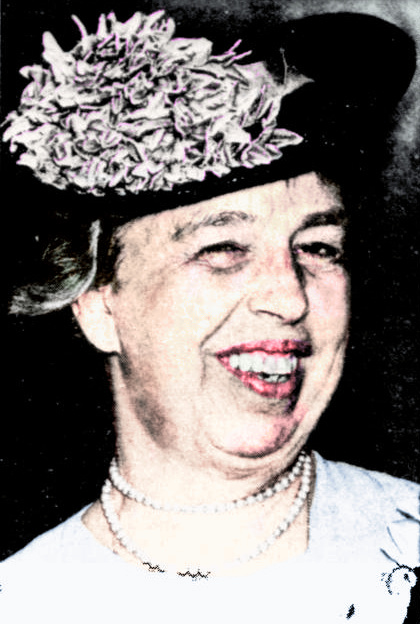
MY DAY
By Eleanor Roosevelt
September 2, 1940
Hyde Park, Sunday –
To me and to every citizen of the United States, Labor Day must be one of the most significant days on our calendar. On this day we should think with pride of the growing place which the worker is taking in this country. In every walk of life, the man who actually does the work is gaining in influence and respect. That is as it should be in a democracy, and it is the surest way of proving that we intend to preserve democracy.
I was talking to a Frenchwoman the other day who, though married to a citizen of Venezuela, has lived many years of her married life in France and left there only last June. One thought she expressed has been echoing and re-echoing in my mind. It ran approximately like this:
I wish I could tell the people in America what happened to the spirit of France. There were too many people there who had either a little money or a great deal, who cared more about what they had than about France, and who believed the Hitler propaganda that communism was something imminent and threatening because of demands being made by the workers. They were therefore almost willing to invite Mr. Hitler to control their country, in the hope that by doing so they would continue to retain all that they had without making any concessions to the workers.
They never realized that these workers in their country had a right to share some of the things controlled by the little and big employer in shop or factory, mine or field. Now these employers have learned to their sorrow that Mr. Hitler has taken everything.
She told me the story of a woman whose father was a self-made man, owner of a fairly big business, and who slept with her jewels under her pillow every night because she was afraid that the workers would come and burn the factory when they heard of the French army’s collapse. The workers did nothing of the kind, but Mr. Hitler has taken over the factory – and no doubt her jewels, though that was not mentioned in the tale. But all that went to make the factory a success is gone, and her country is gone too.
There is a lesson for us in this tragedy. Our people must be one. On Labor Day we must remember that this nation is founded to do away with classes and special privilege; that employer and worker have the same interest, which is to see that everyone in this nation has a life worth living. Only thus can we be sure that Labor Day will continue to be celebrated.
If Labor Day does not live as one of our significant holidays, we may be very sure that many other significant holidays will pass with it.